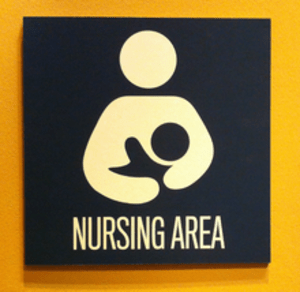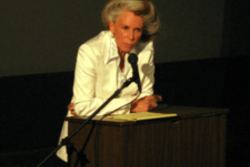Public Indecency, or Necessity?
Every once in a while the topic of public breastfeeding sparks a heated debate in the media. Whether it’s a nursing mother being asked to leave a public place, or a nurse-in being staged, controversy ensues as many express their varying opinions on the topic. I’m a seventeen-year-old girl who is not a mother (nor would I like to be anytime soon), but the controversy surrounding public breastfeeding completely baffles me.
Recently, Pope Francis supported and encouraged nursing mothers to feed their infants in church, thus propelling this issue back into the limelight. Many people strongly believe that public breastfeeding is indecent exposure. In addition, one of the most common arguments against nursing in public is that it creates more opportunities for sexual predators. For these reasons, and probably others, breastfeeding in public is against the law in some states. These laws only further the notion that breastfeeding in public is inappropriate; once an act is deemed illegal, the negative connotations take over.
The point about indecency is somewhat comical to me because no one seems to mind all the billboards of women in lingerie that oversexualize female breasts, but when confronted with breasts’ natural use, many people find it inappropriate. The laws against public breastfeeding are based on society’s over-sexualization of the female body, and built around rape culture, which in many ways perpetuates it. The female body is only publicly accepted when it meets the standards that society has imposed on it. When women publicly use their bodies in the way nature intended, many people find it hard to handle.
Having considered the other side of each of these arguments against breast-feeding, I can conclude that none of them are valid, and that they are all sexist. Statistically speaking, babies need to be fed about every two hours. It’s unrealistic to assume that women will always have access to a private area, or will always have the time to find a “suitable” place to breastfeed. If you think about the average woman, oftentimes breastfeeding in public is the only option. The underlying message of arguments against public breastfeeding is that women should be at home taking care of their babies, and not out and about, or working. In 2016, this view is simply unacceptable. Women have been dedicated to proving to our communities that we have more to give to society than children.
If a woman is more comfortable breastfeeding in private, that’s fine. The point is that this should be an individual choice made by women, and not one made by the government or by the surrounding public. If you don’t want to watch a woman breastfeed, then don’t look. Your personal comfort isn’t more important than a mother’s ability to feed her child. I can understand the other side, but I can’t validate it.
Breastfeeding is natural, and instead of crying out that doing it in public in indecent, or that it puts women in danger of being sexually harassed, we should focus on de-sexualizing women’s bodies, and on holding predators accountable for their actions rather than blaming women for them. The arguments against public breast-feeding are sexist and antiquated, and they should no longer hold any credence in our society.
This piece was written as part of JWA’s Rising Voices Fellowship.








well stated, excellent topic, beautifully written